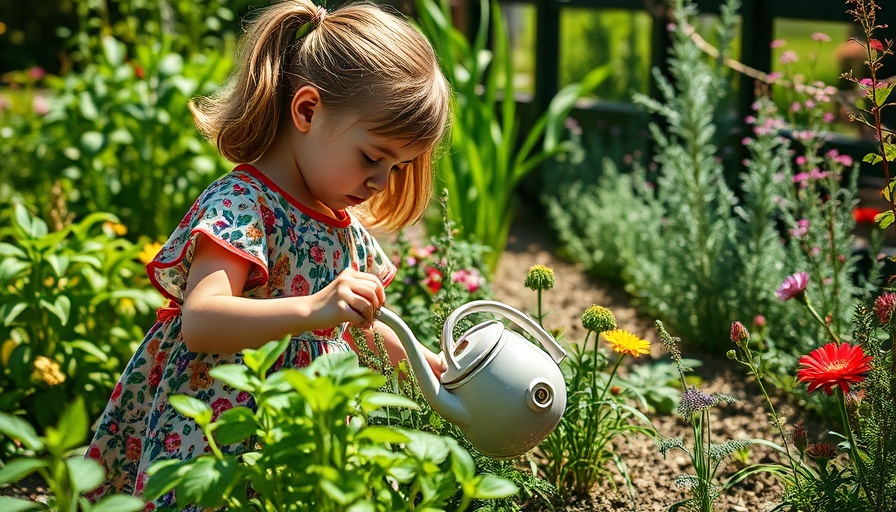
Fostering a Green Thumb: An Enriching Experience
Introducing children to the world of herbalism is not just about medical remedies; it's an experiential journey that cultivates their curiosity and connection to nature. Engaging kids in gardening helps them develop a sense of ownership and responsibility. By planting herbs like basil and mint, children can observe the growth cycle, understanding where their food and medicine come from. This grounding experience enriches their learning and fosters a relationship with nature that will serve them in many aspects of their lives.
Connecting Through Senses: The Power of Engagement
One of the enchanting aspects of introducing children to medicinal herbs is their ability to engage multiple senses. Master herbalist Derek Fleming emphasizes the importance of using sensory descriptors in their herbal education. Rather than simply stating that rosemary is good for memory, encourage kids to feel its needle-like texture or smell its distinctive, invigorating scent. This sensory experience not only makes learning fun but also embeds the knowledge deeply in their minds.
Herbs in the Kitchen: A Kid-Friendly Culinary Adventure
Cooking with herbs is an inviting platform for introducing children to the medicinal properties embedded within culinary spices. Incorporating fresh herbs into everyday meals allows kids to explore the flavors, textures, and scents directly linked to health benefits. Teaching them to infuse their tea with chamomile for calmness or sprinkle cilantro into salsa for digestion creates a hands-on experience that is both delicious and educational.
Herbal Remedies: Safe Guidance for Parents
While exploring the wonderful world of herbs, parents must remain mindful of safety and proper usage. The dosage guidelines for herbal consumption typically apply to adults, so supervision is key when introducing herbs to children. As a basic rule, a child’s serving should be a third of an adult dose, congruent with their weight. Recognizing the gentle nature of culinary herbs can make this process easier, allowing parents to guide their children safely into a holistic lifestyle.
Common Myths About Children's Herbal Use
There are misconceptions around the use of herbs for children that warrant addressing. Some parents may fear that introducing herbs is akin to giving medication, but many culinary herbs are safe and beneficial when used appropriately. For instance, thyme can be soothing for coughs, and chamomile is often recommended for sleep. Clarifying these myths allows parents to embrace herbal remedies without apprehension, making them integral tools in nurturing their child's health.
Future Trends: The Rise of Herbal Education for Children
Looking ahead, the trend of integrating herbal education within school curriculums is emerging as more educators recognize the value of holistic education. Schools may begin to incorporate botany lessons that focus on herbal plants, helping kids understand the relationships between the environment and their health. This could empower a new generation equipped with knowledge about natural remedies, emphasizing sustainability and wellness from a young age.
With a rising trend toward natural living and self-sufficiency, introducing children to the healing power of plants sets them on a path toward healthier choices in the future. As they learn about the world of herbs, they not only gain valuable knowledge but also develop a habit of turning to nature for healing and comfort. So why not start today? Gather your kids, plant some herbs, and watch them flourish.
 Add Row
Add Row  Add
Add 




Write A Comment